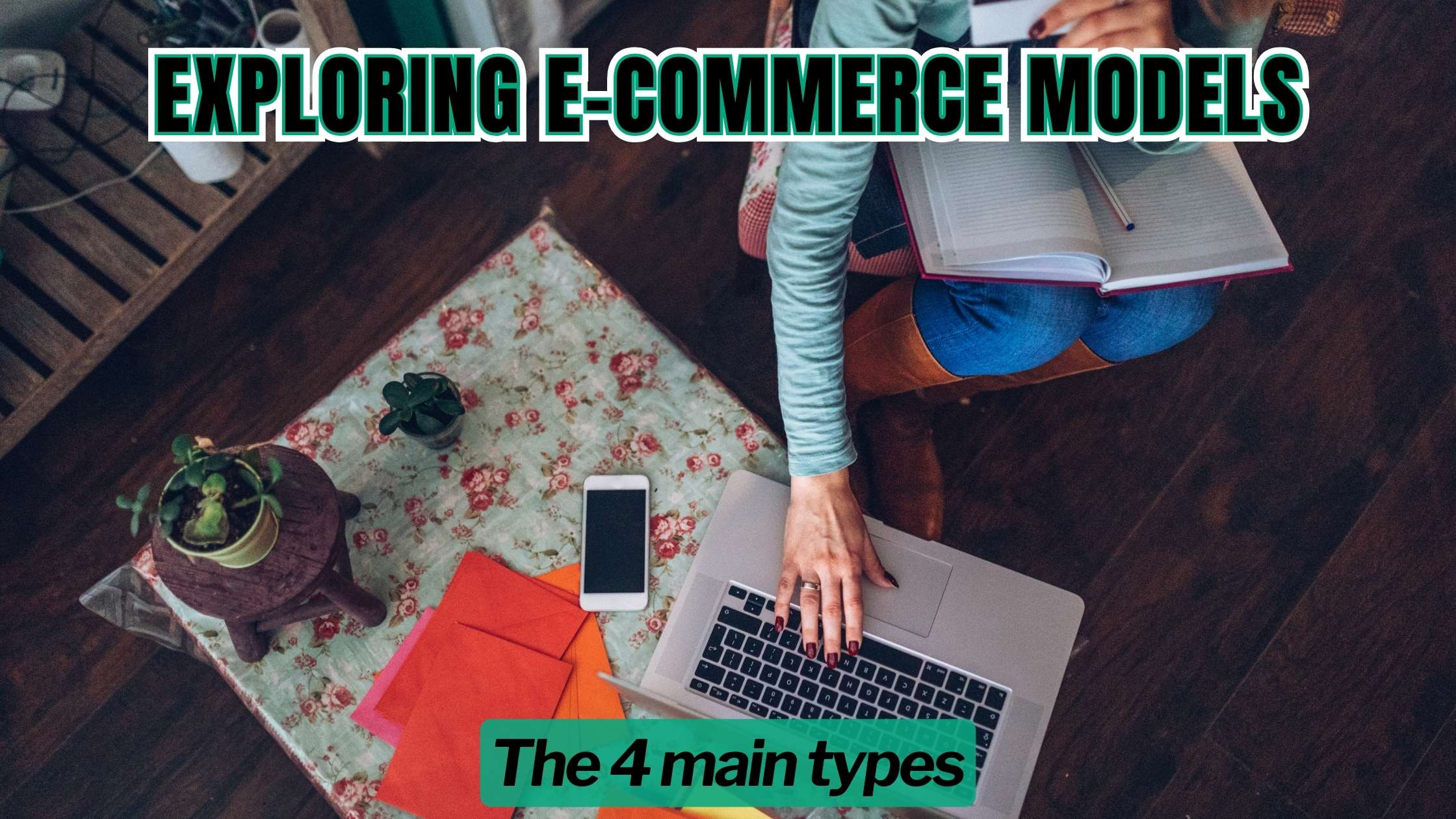Exploring e-commerce models: The 4 main types


Exploring E-commerce Models: The 4 Main Types
In the ever-expanding realm of e-commerce, understanding the various business models is crucial for entrepreneurs and businesses looking to establish a successful online presence. From traditional retail to emerging trends in direct-to-consumer brands, each e-commerce model offers unique opportunities and challenges. In this comprehensive guide, we’ll delve into the four main types of e-commerce models, providing insights into their characteristics, advantages, and considerations for implementation.
1. Business-to-Consumer (B2C) E-commerce
Business-to-Consumer (B2C) e-commerce is perhaps the most familiar model, involving transactions between businesses and individual consumers. This model encompasses a wide range of online retail platforms, from global marketplaces like Amazon and eBay to niche specialty stores. B2C e-commerce offers convenience, accessibility, and a vast selection of products for consumers, while businesses benefit from reaching a broad audience and leveraging digital marketing strategies to drive sales.
2. Business-to-Business (B2B) E-commerce
Business-to-Business (B2B) e-commerce focuses on transactions between businesses, catering to the needs of wholesalers, manufacturers, and suppliers. This model facilitates the procurement of goods and services on a larger scale, often involving negotiated contracts and bulk orders. B2B e-commerce platforms streamline the purchasing process, providing businesses with access to a network of suppliers and vendors, along with tools for inventory management, procurement, and supply chain optimization.
3. Consumer-to-Consumer (C2C) E-commerce
Consumer-to-Consumer (C2C) e-commerce platforms enable individuals to buy and sell goods or services directly to other consumers. Popular examples of C2C marketplaces include eBay, Etsy, and Craigslist, where users can list products for sale or auction. C2C e-commerce offers opportunities for individuals to monetize their skills, hobbies, or unused items, fostering a sense of community and entrepreneurship. However, challenges such as trust and quality assurance may arise, requiring robust moderation and feedback systems.
4. Direct-to-Consumer (D2C) E-commerce
Direct-to-Consumer (D2C) e-commerce has emerged as a disruptive force in the retail industry, allowing brands to bypass traditional distribution channels and sell directly to customers. D2C brands leverage digital marketing, social media, and data analytics to build relationships with consumers, offering personalized shopping experiences and unique product offerings. By eliminating intermediaries, D2C brands retain greater control over pricing, branding, and customer interactions, leading to higher margins and increased customer loyalty.
Relevant SaaS Products for E-commerce
- Shopify: A leading e-commerce platform that enables businesses to create and customize online stores with ease. Official Website
- WooCommerce: A flexible and customizable e-commerce plugin for WordPress websites, offering features for selling both physical and digital products. Official Website
- BigCommerce: An all-in-one e-commerce platform that provides tools for building and scaling online stores, with features for marketing, analytics, and inventory management. Official Website
- Magento: An open-source e-commerce platform with robust features for creating tailored shopping experiences and managing complex online stores. Official Website
- Salesforce Commerce Cloud: A cloud-based e-commerce solution that empowers businesses to deliver personalized, omnichannel shopping experiences across web, mobile, and social channels. Official Website
Conclusion: Navigating the E-commerce Landscape
In conclusion, exploring the four main types of e-commerce models provides businesses with valuable insights into the diverse opportunities available in the digital marketplace. Whether you’re selling products directly to consumers or facilitating transactions between businesses, understanding the nuances of each model is essential for success. By leveraging the insights and deals offered by Subscribed.FYI, businesses can optimize their e-commerce stack and stay ahead in an increasingly competitive landscape.
Unlock exclusive deals and discounts on top e-commerce tools and platforms at Subscribed.FYI Deals. Whether you’re launching a new online store or scaling your e-commerce operations, Subscribed.FYI offers savings on essential SaaS tools to optimize your business processes and drive growth.
At Subscribed.FYI, we’re committed to empowering businesses with the insights and resources they need to thrive in today’s competitive landscape. Explore our platform to discover comprehensive information, reviews, and deals on the best e-commerce tools for your business needs.
Relevant Product Links:
For exclusive deals on top e-commerce tools, visit Subscribed.FYI Deals.








